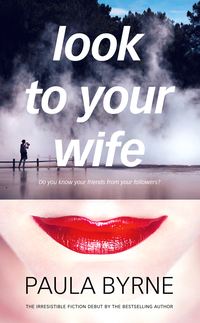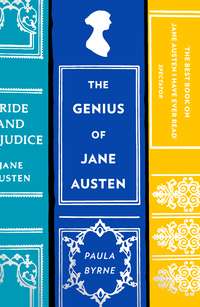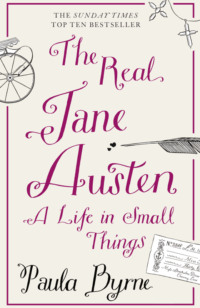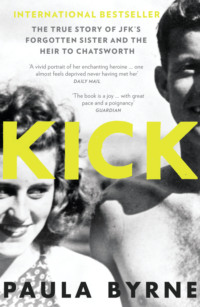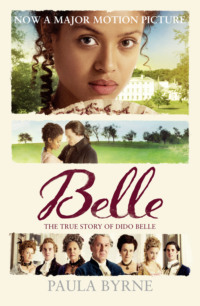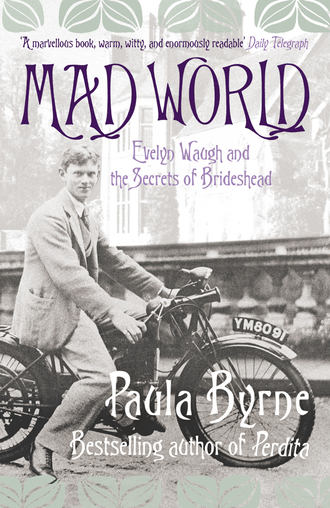
Полная версия
Mad World: Evelyn Waugh and the Secrets of Brideshead
Though intoxicated by Acton and the new set into which he was drawn, Evelyn was wary of Brian Howard, describing him as Lord Byron was famously described a century before: mad, bad and dangerous to know. Howard’s ‘ferocity of elegance’ seemed to belong to the age of Byron, not the present. Evelyn couldn’t quite cope with it. Or perhaps it was the sheer exhibitionism of Howard’s homosexuality that both fascinated and repelled him.
Harold Acton gave Evelyn an entry into the Hypocrites’ Club. There he discovered hard drinking and firm friendship: ‘it was the stamping ground of half my Oxford life and the source of friendships still warm today’. It was at the Hypocrites that he was introduced to Hugh Lygon and his elder brother Elmley.
The Hypocrites was one of many drinking clubs at the university – such clubs were necessary because undergraduates were banned from going into the city’s pubs, for fear of town versus gown fisticuffs or liaisons with unsuitable women. The most exclusive of the clubs was the famous Bullingdon, immortalised by Evelyn in his novel Decline and Fall, where it becomes the Bollinger Club, characterised by ‘the sound of the English county families baying for broken glass’. The Bullingdon was a top-secret (all male, of course) dining club, not strictly a drinking society. Then, as now, it drew its membership from the super rich. It was known then for champagne drinking, ritualised violence and a uniform that consisted of exquisite Oxford blue tailcoats offset with ivory silk lapel revers, brass monogrammed buttons, mustard waistcoat and sky blue bow tie. All members had to endure a humiliating initiation rite that included having their rooms trashed as champagne was binged upon and regurgitated. Freddy Smith, second Earl of Birkenhead (president of Pop at Eton, Christ Church man and future military colleague of Evelyn in Yugoslavia), captured the Bullingdon men with aplomb: ‘eldest sons from aristocratic families who drank champagne at breakfast and were often to be found flourishing hunting-whips and breaking windows in Peckwater Quad’.
Harold Acton was not the type (or the class) to have become a member of the Bullingdon. Brian Howard, on the other hand, being a huntsman as well as an aesthete, was once invited to one of their dinners, after which 256 panes of college glass were smashed. He followed up this adventure by spending, as he put it, ‘a tumultuous night between the sheets’ with a club member.
The Hypocrites’ Club did not have quite the same exclusivity, though it too was characterised by a love of fine dining and, most importantly, hard drinking. If the motto of the Bullingdon was an unequivocal ‘I love the sound of broken glass’, that of the Hypocrites was laced with neat irony: ‘water is best’. The watchwords were style and panache. Conversation turned on art and literature rather than deer-stalking and riding to hounds. The club was at this time in a state of transition. Its original members had been heavy drinking but somewhat sombre Rugbeians and Wykehamists (former pupils of Rugby and Winchester, the latter being generally regarded as the most academic of the great public schools). But as Evelyn arrived in Oxford it was in the process of ‘invasion and occupation by a group of wanton Etonians who brought it to speedy dissolution’. The Hypocrites’ Club was beginning to be associated with flamboyant dress and a manner that had the distinct smack of homosexuality. The name of the club came from the ancient Greek word for an actor: it was a place where you could pose and play roles. The president was Lord Elmley. As the sons of an earl, Elmley and Hugh were natural Bullingdon men. Their presence among the Hypocrites was intriguing and provocative.
‘At Oxford I was reborn into full youth,’ wrote Waugh apropos of his life once he had been initiated among the Hypocrites. He later denied that he had any ambitions to ingratiate himself with the wealthy or to ‘make influential friends who would prosper any future career’. He said that his interests were ‘as narrow as the ancient walls’. For Evelyn it was quite simple: he wanted to be loved and he wanted to live fully and freely – ‘I wanted to taste everything Oxford could offer and consume as much as I could hold.’
Gone were the days of bread, cheese and beer in the Hertford Underworld. Now it was abundant food and fine wines, claret followed by port. He quickly ran into debt and had to auction all his books.
In his capacity as club president, Elmley promulgated a rule that ‘Gentlemen may prance but not dance.’ Along with aestheticism and irony, a welcoming of overtly homosexual behaviour was one of the things that set the Hypocrites apart from the Bullingdon, let alone the rowing and rugger clubs.
The Hypocrites initiated Evelyn into the habit of hard drinking. Because of fear that American-style prohibition might be on the way to Britain, there was ‘an element of a Resistance group about the drunkards of the period’. The club premises – rooms above a bicycle shop – were described by one of Evelyn’s friends as a ‘noisy alcohol-soaked rat-warren by the river’. Evelyn remembered a Tudor half-timbered building with a steep and narrow staircase, smelling of onions and stewed meat. He said that the local police constable was usually to be found there, taking a break from his beat, standing in the kitchen, mug of beer in one hand and helmet in the other. The two large rooms beyond the kitchen were decorated with murals by Oliver Messel and Robert Byron. There was a large piano where members played jazz riffs or accompanied the singing of Victorian drawing-room ballads.
Though Evelyn portrayed the place as a den of iniquity, it was actually very civilised. Harold Acton said that there was always someone to talk to ‘with a congenial hobby or mania’, as if suggesting a tweedy discussion of stamp-collecting rather than a Bullingdon-style debauch. What Evelyn loved about the place was its conversation. He relished hearing Acton affect an Italian accent and say: ‘My dears, I want to go into the fields and slap raw meat with lilies.’
In his memoirs Evelyn gave a roll call of the names of famous people who were members of the club. The best and worst that the university had to offer were either members or guests. The club was beginning to get a reputation. Isis, the university newspaper, reported that its members were distinctly alarming on account of their dazzling intellectual catch-phrases and cultivated rudeness.
Evelyn’s new friends brought him into a circle that was altogether much grander than any he had hitherto known. He found himself among an extraordinary set of young men who would continue to make waves after they left Oxford. There were other pairs of brothers besides the aristocratic Lygons. First the Duggan boys, Alfred and Hubert. Alfred had the aura of a ‘full-blooded rake of the Restoration’ and his younger brother Hubert – Anthony Powell’s Eton messmate – was ‘a delicate dandy of the Regency’. Then there were the Plunket Greenes, David and Richard. Both were musical. David was a gentle giant who loved jazz. Many of these young men ended up as alcoholics or suicides (or both). But to young Evelyn they were glamour itself. He and most of his friends were often drunk, whereas Alfred Duggan was always drunk. The Duggans, stepsons of Lord Curzon, Chancellor of the University, had vast riches at their disposal.
Many members of the Hypocrites, including Evelyn, became members of another fraternity, The Railway Club – motto: ‘There is no smoke without fire.’ Its founder was John Sutro, a Trinity College undergraduate from a wealthy Jewish family. His home was where Evelyn first tasted plovers’ eggs. He became a true friend. Evelyn remembered his loyalty and hospitality, describing him as ‘above all humorous; a mimic of genius … he has never wearied of a friend or quarrelled with one’.
The Railway was so called because Sutro was an aficionado of nighttime journeys on steam trains. Club members would travel around the country, dining on the outward leg and sharing post-prandial drinks in the train bar on the return to Oxford. Dinner jackets were always worn. Hugh Lygon was a member. Even after Oxford, the club continued to hold dinners. Over time, the menus grew more and more elaborate, while, in order to accommodate them, the journeys became longer and more adventurous.
Hugh Lygon’s Oxford career was not devoted to academic study. An evening in Magdalen, recorded in detail by Terence Greenidge in his book Degenerate Oxford?, may serve as the epitome of the Lygon brothers’ life among the dreaming spires.
Elmley was something of a fish out of water. He had matriculated at Magdalen, a college renowned for aristocratic breeding and sporting endeavour. But he disliked rowing intensely and thought that hunting was cruel – a belief translated by Waugh into a trait of Sebastian Flyte’s older brother ‘Bridey’, who refuses to ride to hounds. It was this unorthodox streak in Elmley’s character that took him among the Hypocrites, where Hugh was happy to join him. Elmley was clearly recognisable as Hugh’s brother, with similar but not such classical features. Even as an undergraduate he had a tendency towards the portly. Evelyn described him as ‘a solid, tolerant, highly respectable’ Magdalen man. But there is a dig in his observation that Elmley was ‘voluntarily rusticating with the yeomanry’.
One evening, in a spirit of mischief, Elmley invited a group of his bohemian Hypocrite friends to a Magdalen ‘wine’ – a college entertainment evening dominated by the Athletes. Harold Acton turned up in a high-necked scarlet jumper, David Plunket Greene in flowing trousers and a broad-brimmed hat, Terence Greenidge in a black sports coat with Russian-style fur-embroidered edges. Robert Byron – who shared Evelyn’s love for all things Victorian – dressed as Prince Albert, and Hugh was as Hugh always was, a representative, in Greenidge’s words, of ‘the slightly effeminate, elegant type of jeunesse dorée’. No sooner had they arrived than a Magdalen undergrad pointed at Terence’s fur collar and said ‘Jesus Christ, what’s that?’
In hall, they drank fine port and joined in with some enthusiastic singing. But Harold insisted on leaning over the chair in front of him and loudly addressing Hugh as ‘darling’. To which an Athlete countered: ‘None of your tricks here!’
There was then a break, during which they all went down into the Oxford night for ‘a breather’. Six members of the rowing crew spotted Elmley and Plunket Greene in the quad. ‘Here are two of those bloody Aesthetes,’ they said; ‘Let’s chuck them in the river.’ But Elmley was a burly six-footer and Plunket Greene even taller. The rowers had second thoughts and retreated, saying: ‘Let’s have another drink first, and chuck them in the river afterwards.’ At the end of the evening, Elmley had to hurry his friends out of the college in order to save them from a large group of now very drunk Athletes. Hugh just drifted away. He was, according to Greenidge, more secure than the others ‘because the jeunesse dorée type is not considered pre-eminently Aesthetic and Athletes are apt to respect a man with an Honourable in front of his name’.
Hugh’s life at Oxford developed into one of idleness alleviated by pranks. On one occasion he and a group of friends staged a mock duel, complete with pistols and seconds, having previously leaked the news of it to the editor of the Oxford Times in an effort to provide a lively story to increase the paper’s flagging circulation. Stephen McKenna, a gentleman of leisure who wrote popular fiction about aristocratic life, used the incident as the basis for a novel, published in 1925, called An Affair of Honour. He dedicated it ‘To Hugh Lygon, to whom I am indebted for the seed of truth from which this tree of fantasy has grown’.
‘The record of my life there,’ wrote Waugh of his Oxford years, ‘is essentially a catalogue of friendships.’ In his view, what undergraduates learned they learned from one another, not from the dons: ‘the lessons were in no curriculum of scholarship or morals’. He also admitted that ‘Drinking had a large part in it.’
Evelyn was a noisy drunk. Once when asked why he was so aggressively loud, he responded: ‘I have to make a noise because I am so poor.’ This reply delighted his new friends: it had the right sort of panache. Shared drunkenness became a bond. Beer was cheap at the Hypocrites (8 pence a pint), enabling Evelyn to indulge himself to excess. The sight of a drunken Evelyn became familiar: ‘very pink in the cheeks, small, witty and fierce, quite alarming, but fascinating’. He lit up the gloomy room like ‘a bright spark from the fire’, though once he got into trouble for smashing up the furniture with that cudgel-like stick of his.
He was appointed Hypocrites club secretary at his very first meeting. He performed no duties in the role. Alfred Duggan, who was frequently rendered speechless with drink, began to invite Evelyn to luncheon parties. At last the boy from suburban Golders Green and minor public school Lancing was moving among the wealthy, the aristocratic and the debauched. Duggan instructed his scout always to lay an extra place at the luncheon table just in case he had invited someone when he was drunk. The place was always occupied. There were often thirty or forty guests and the parties went on for most of the day. In winter, they drank mulled claret followed by port until long after dusk. Waugh learnt how to finger long-stemmed glasses, sniff the wine and hold it up to the light that slanted in through the narrow Gothic windows. Often Duggan had to be put to bed by his friends.
The Hypocrites’ Club found a friend in John Fothergill, proprietor of an old inn called the Spreadeagle at Thame, a town about fifteen miles from Oxford. This was a location where club members could indulge in gaudy nights far from the patrols of the ‘bulldogs’ (the university’s bowler-hatted private police force). Fothergill was an eccentric former art dealer and historian who was very sympathetic to Harold Acton and his set, though less kind to more run-of-the-mill guests. He once charged a party extra money for being ugly. He seemed especially partial to the antics of the Hypocrites; their aristocratic connections no doubt added to their allure.
Fothergill wanted to make the Spreadeagle ‘an Eton or Stowe of public houses’. He had a reputation for being an incorrigible snob who bullied his working-class clientele while being ‘all over’ the aristocrats. But in fact it was appearance, intelligence and style that mattered more to him. His motto was ‘not only to have proper and properly cooked food but to have only either intelligent, beautiful or well-bred people to eat it’. The inn was furnished like a home rather than a hotel, filled with Georgian and early Victorian furniture and fine china. As a gentleman innkeeper, he was exactly the sort of man Evelyn admired: rude to those he despised, determined to maintain the standards of a better age. On the publication of his first novel, Decline and Fall, Waugh sent a copy personally inscribed to ‘John Fothergill, Oxford’s only civilising influence’. Fothergill chained it up in the loo and said that it was ‘the best comedy in the English language’.
In 1924, Elmley held a twenty-first birthday party at the Spreadeagle for sixty young men, including all members of the Hypocrites’ Club. It doubled as a wake for the demise of the club, which had been closed down by the proctors after complaints by the neighbours about riotous behaviour and noise. They went down from Oxford in a fleet of hearses. Elmley, dressed in a purple velvet suit, provided the champagne. Harold Acton made a speech about the beauties of the male body; Evelyn got silently drunk; Robert Byron (wearing lace) passed out and the evening ended in dancing, persimmons thrown against the wall, and couples (all male) having sex in the hearse. In his memoirs, Fothergill noted the impressive amount of champagne that was consumed. Among his abiding memories were Terence Greenidge looking ‘quite mad’ and after-dinner dancing that reminded him of ‘wild goats and animals leaping in the air’.
Evelyn enjoyed heavy drinking because it made him uninhibited. He later acknowledged to his first biographer, Christopher Sykes, that he experienced an acute homosexual phase at Oxford. For the short time it lasted, his homosexual activity ‘was unrestrained, emotionally and physically’. This was not at all unusual for male students at Oxford. There were few women at the university (undergraduettes were kept in purdah with the exception of eight weeks) and other heterosexual relationships were frowned upon because they usually meant consorting with the undesirables of the town. Some of Evelyn’s friends went up to London for sexual experiences, coming back on the last train, which was known as the ‘fornicator’. But in the main, homosexual encounters were more common.
Homosexuality was considered by many to be a passing phase, which young men would grow out of once they had left Oxford and begun to meet young women. In those days it was chic to be ‘queer’ in the same way that it was chic to have a taste for atonal music and Cubist painting. Even old Arthur Waugh acknowledged as much: ‘Alec called on me the other day with a new friend of his, a sodomite, but Alec tells me it is the coming thing.’
‘Everyone in Oxford was homosexual at that time,’ said John Betjeman, who was there. Though homosexuality was illegal, many senior members of the university, most notably the flamboyant don Maurice Bowra, actively encouraged it, sometimes acting as go-between in setting up assignations for their pupils. Tom Driberg enjoyed soixante-neuf with a young don in the rooms where more cerebral tutorials were supposed to take place. The Hypocrites’ Club was the epicentre of what would now be called the university’s gay scene. According to Sykes, who knew Waugh extremely well, Evelyn was never shocked by homosexuality and remained very interested in the subject. He was, after all, ‘interested in all things which shed light on human character’. But later in life he would worry about his son discovering his past indiscretions.
In the spring of 1924, Evelyn informed his old school friend, Dudley Carew, that his life had become ‘quite incredibly depraved morally’. Drunkenness at the Hypocrites was part of the story, but hardly sufficient to qualify as incredible depravity. Something else was being hinted at. Tom Driberg, dancing with a fellow member, saw a drunken Evelyn rolling on the sofa with another boy, ‘with (as one of them later said) their tongues licking each others’ tonsils’. Anthony Powell’s first encounter with Evelyn was a sighting of him at the Hypocrites sitting on the knee of another member, Christopher Hollis. A club guest, Isaiah Berlin, also saw him on a settee kissing a friend. Evelyn later teased Christopher Sykes for not having had a homosexual phase, saying that he had missed out on something special.
But it was not just sexual experimentation. There were genuine love affairs. When the staunchly heterosexual Henry Yorke read Brideshead Revisited, he told Evelyn that it made him regret not falling in love at Oxford himself: ‘I see now what I have missed.’ What he missed was what Waugh experienced: real passion. Evelyn’s sexual abstinence at school seemed to make his Oxford love affairs even more intense.
Though Evelyn relished the companionship of eccentric and slightly crazed friends like Terence Greenidge and Harold Acton, romantically he was drawn to fragile, beautiful boys. Before being seduced by the Hypocrites, he had become intimate with a shy and scholarly left-wing Wykehamist from Balliol called Richard Pares. Evelyn described him as ‘abnormally clever’. In a later letter to Nancy Mitford, he also described Pares as ‘my first homosexual love’.
Pares was pale skinned, with a mop of fair hair and large blue eyes that somehow seemed blank. Their affair began in the summer of 1922. Evelyn later recalled: ‘I loved him dearly, but an excess of wine nauseated him and this made an insurmountable barrier between us. When I felt most intimate, he felt queasy.’ In other words, Waugh needed to be very drunk to release his strongest emotions, whereas Pares could not hold his drink. Nevertheless the young men spent two intense terms together. They only drifted apart when Waugh developed his ‘indiscriminate bonhomie’ among the Hypocrites. Being drunk was becoming his greatest ‘aesthetic pleasure’, whereas Pares was more interested in his research on the West Indian sugar trade. He was duly rescued from Bohemia by a homosexual don called Urquhart (known as ‘Sligger’), Dean of Balliol, who encouraged him to become an academic. He took a first and was elected to a fellowship of All Souls. Evelyn always remembered him with great affection and late in life Pares, happily married and respectable, remembered the affair as one of the most passionate and intense of his life.
Christopher Hollis, on whose knee Anthony Powell had first spotted Evelyn at the Hypocrites, wrote a memoir of Oxford in the Twenties, in which he said that Waugh had two homosexual lovers, first Richard Pares and then Alastair Graham. In A Little Learning, Waugh records that Richard Pares’ successor as what he called ‘the friend of my heart’ was a boy that ‘I will call Hamish Lennox’. ‘Hamish’ is described as ‘no scholar’: he ‘soon went down to take a course in architecture in London; but he continued to haunt Oxford and for two or three years we were inseparable or, if separated, in almost daily communication, until like so many of my generation, he heard the call of the Levant and went to live abroad’. ‘Hamish,’ says Waugh, ‘had no repugnance to the bottle and we drank deep together. At times he was as gay as any Hypocrite, but there were always hints of the spirit that in later years has made him a recluse.’ This account precisely fits Alastair Graham and Waugh’s relationship with him.
The two boys drank deep together of both alcohol and love. In one of his letters Alastair enclosed a naked photo of himself, leaning against a rock face, with arms outstretched, buttocks in full view, along with a description of the best way to drink fine wine: ‘You must take a peach and peel it, and put it in a finger bowl, and pour the Burgundy over it. The flavour is exquisite.’ The letter ended: ‘With love from Alastair, and his poor dead heart.’
Alastair came from the Scottish borders. His father was dead, his mother ‘high-tempered, possessive, jolly and erratic’. A southern belle from Savannah, she was the model for the character of Lady Circumference in Decline and Fall. She had settled in Warwickshire for the sake of the hunting. She devoted herself to frenzied gardening, disingenuously claiming that she was keeping the place on solely for the sake of Alastair (who in reality was no huntsman).
Alastair invited Evelyn home. His mother’s residence in the village of Barford, between Stratford-upon-Avon and Warwick, gave Evelyn his first taste of country-house living. Though on nothing like the scale of Madresfield, Barford House is much the grandest building in the village. It still stands behind a high wall. Albeit more shabby genteel than aristocratic grand, it was still a world away from Underhill. There was a ballroom that had been built especially for Alastair’s coming-of-age party.
Alastair, like Hugh Lygon, was a dreamer. He loved lying in the garden looking at flowers, or searching the fields for edible fungi. He drove his mother mad. She befriended Evelyn in the hope that he would persuade her son to cut down on his drinking and start living a less indolent life. He did not oblige.
Though Alastair frequently visited Evelyn in Oxford, he was resident in London. So did Evelyn have another undergraduate lover? Most biographers follow Hollis in identifying only Pares and Graham, but according to the Oxford don A. L. Rowse, Evelyn had three lovers at Oxford. The third man was Hugh Lygon. Rowse was convinced that Evelyn was bisexual and that as a novelist he ‘made use of every little scrap of his experience – he wasted nothing’. He remembered a conversation with Lady Sibell, eldest of the three Lygon sisters, who knew Evelyn well. ‘He was in love with my brother,’ she recalled.
Evelyn’s three lovers were of a very similar type: pale and beautiful, with the aura of Rupert Brooke. Richard and Hugh were both blond. After Oxford he fell in love with women of the same ethereal beauty: Diana Mitford, Teresa Jungman, Diana Cooper, Laura Herbert.


